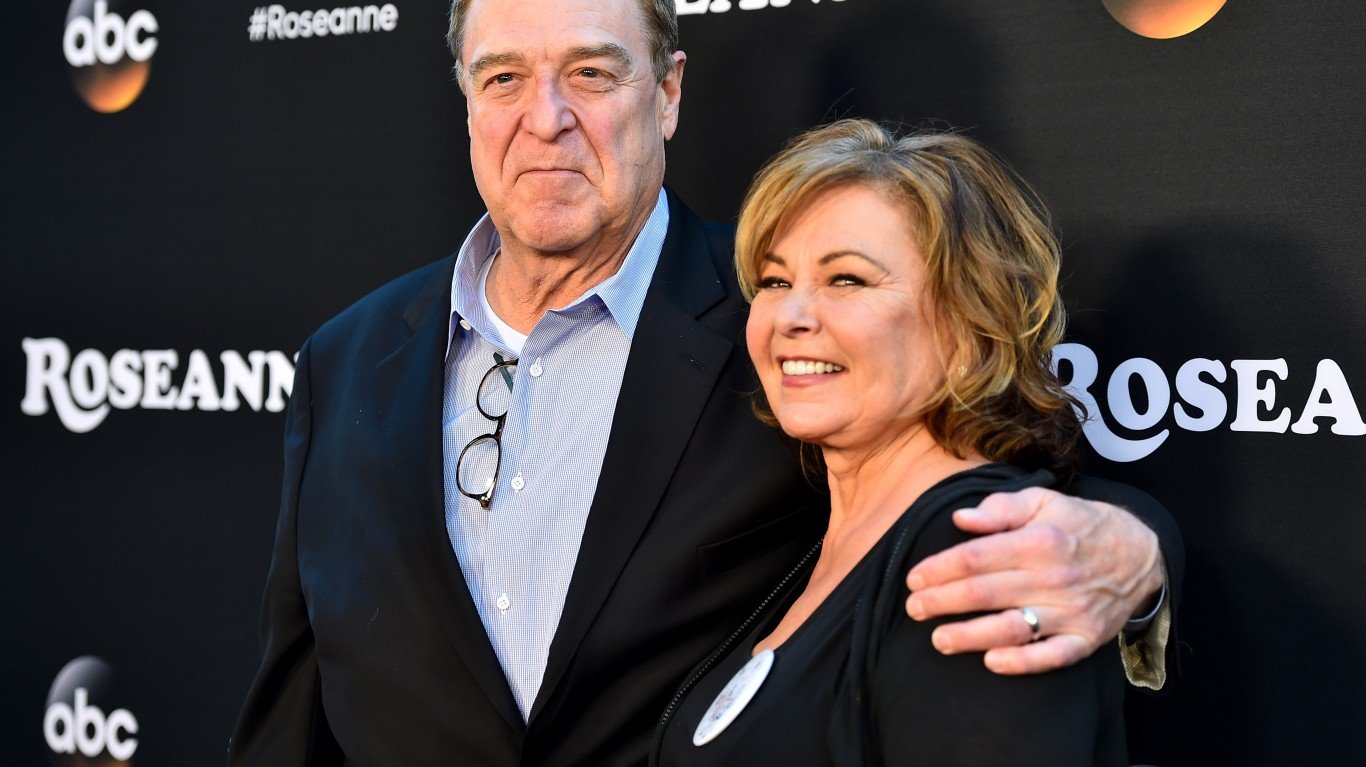We have mostly come through earnings season, and the start of February turns into “Annual Report Season” on Wall St. This is when investors get to see how all the ongoing and new lawsuits and other crucial issues can impact their companies they have invested in. If there is one cult stock in media, it is Sirius XM Radio Inc. (NASDAQ: SIRI). The satellite radio monopoly released its annual report in a 10-K filing with the Securities and Exchange Commission, and we have found some interesting issues that shareholders will want to consider. Source: courtesy of Sirius XM Radio
Source: courtesy of Sirius XM Radio
Here are the hidden gems from the Sirius XM 10-K.
Competitive threats. The satellite radio may be a monopoly in the classic sense, but it warns of increased competition through time. Sirius said:
We face substantial competition from other providers of radio and other audio services. Our ability to retain and attract subscribers depends on our success in creating and providing popular or unique music, entertainment, news and sports programming. Our subscribers can obtain certain similar content for free through terrestrial radio stations or Internet radio services. Audio content delivered via the Internet, including through mobile devices, is increasingly competitive with our services. In addition, automakers and aftermarket manufacturers have introduced factory-installed radios capable of seamlessly accessing Internet-delivered audio entertainment and easily connecting to Internet-delivered content on smartphones.
In short, Sirius XM is at least recognizing that Pandora Media Inc. (NYSE: P), Spotify and others are still threats to the business.
Satellite risks continue to be substantial. Sirius is planning another satellite launch this year. These are expensive and risky, and it said, “Space Systems/Loral has constructed a new satellite for the Sirius system that is expected to be launched during mid-2013.” Sirius also said that, if it has a satellite failure or if its satellites experience degradation on their solar arrays, it has a backup: “Our XM-5 satellite serves as an in-orbit spare for both of our services. In the event of a failure of XM-3, XM-4 or any of the Sirius satellites, service would be maintained through XM-5.” That being said, it has some insurance to offset some of the risks and said that it maintains “in-orbit insurance policies” covering only its XM-5 and FM-5 satellites. But it also warned that these policies will expire in 2014 and 2015 and Sirius may not renew them.
Higher royalty rates for the same music content. The company said that the royalty rate for 2012 was 8.0%, but that has just risen.
New royalty rates for our use of sound recordings during the five-year period beginning in January 2013 were announced by the CRB in December 2012. Under the terms of the CRB’s decision, we will pay a royalty based on gross revenues, subject to certain exclusions, of 9.0% for 2013, 9.5% for 2014, 10.0% for 2015, 10.5% for 2016, and 11% for 2017.
While this was previously disclosed, it means that if all other costs are kept flat its operating expenses rise. After looking at the breakdown of expenses, this only gets more important. The company’s 2012 cost of services shows that revenue share and royalties paid out were the largest single expense at $551 million out of a total $2.53 billion in operating expenses for the year.
Less debt at lower rates. The company’s formal long-term debt at the end at the end of 2011 was more than $3 billion. The 10-K stated:
As of December 31, 2012, we had an aggregate principal amount of approximately $2.5 billion of indebtedness. We also have entered into a senior secured revolving credit facility with a syndicate of financial institutions for $1.25 billion, which had not been drawn upon as of December 31, 2012.
Liberty Media Corp. (NASDAQ: LMCA) and John Malone are in control here. In short, you as a public shareholder have no real rights to influence change now at Sirius XM. It shows in detail:
Liberty Media Corporation beneficially owned approximately 50.21% of the common stock and five current Liberty Media executives are members of its board of directors, and Liberty Media has designated an additional three members of the board of directors. Specific concerns: “Liberty Media has the ability to control our affairs, policies and operations, such as the appointment of management, future issuances of our common stock or other securities, the payment of dividends, if any, on our common stock, the incurrence of debt by us, amendments to our certificate of incorporation and bylaws and the entering into of extraordinary transactions, and their interests may not in all cases be aligned with the interests of other stockholders. In addition, Liberty Media will be able to determine the outcome of all matters requiring stockholder approval and will be able to cause or prevent a change of control of our company or a change in the composition of our board of directors and could preclude any unsolicited acquisition of our company. The concentration of ownership could deprive our stockholder’s of an opportunity to receive a premium for their common stock as part of a sale of our company and might ultimately affect the market price of our common stock.” Sirius even admitted that it is a “controlled company” within the meaning of the NASDAQ listing rules and that offers exemptions from certain corporate governance requirements and the company has elected not to comply with certain NASDAQ corporate governance requirements that a majority of the board of directors consist of independent directors.
The Howard Stern risk continues. The 10-K “LEGAL PROCEEDINGS” states:
One Twelve, Inc. and Don Buchwald v. Sirius XM Radio Inc. In March 2011, One Twelve, Inc., Howard Stern’s production company, and Don Buchwald, Stern’s agent, commenced an action against us in the Supreme Court of the State of New York, County of New York. The action alleged that, upon the Merger, we failed to honor our obligations under the performance-based compensation provisions of our prior agreement dated October 2004 with One Twelve and Buchwald, as agent; One Twelve and Buchwald each assert a claim of breach of contract. In April 2012, the Court granted our motion for summary judgment and dismissed with prejudice the suit. The Court found the agreement unambiguous. One Twelve and Buchwald have appealed this decision.
The term “Mel Karmazin” only appears once in the entire 10-K.
Dividends and share buybacks.
On December 28, 2012, we paid a special cash dividend of $0.05 per share of common stock… Our Series B-1 Preferred Stock held by Liberty participated in this cash dividend… The total amount of this dividend was approximately $327 million. The dividend reflects the board’s desire to return value to stockholders and its confidence in the long-term growth prospects of our business. We currently do not intend to declare recurring dividends on our common stock. Our board of directors has not made any determination whether similar special cash dividends will be paid in the future. Our ability to pay dividends on our common stock is currently limited by covenants under our debt agreements. We retain sufficient capital capacity to continue making long-term investments in our programming, research and development initiatives and overall operations as well as pursue strategic opportunities which may arise… In December 2012, we announced that our board of directors had approved a $2 billion common stock repurchase program, which we will begin utilizing in 2013. Shares of common stock may be purchased from time to time on the open market or in privately negotiated transactions.
The exact year-end figure count on subscribers as of December 31, 2012: 23,900,336 subscribers, of which 19,570,274 were self-pay subscribers and 4,330,062 were paid promotional subscribers. Sirius also has an equity interest in Sirius XM Canada, and those subscribers to the Sirius XM Canada service are not included in the total subscriber count.
On the debt issue. Sirius now has pushed out its debt maturity schedule, which we have reported on before. There are no maturities in 2013, and here are the following maturity schedules: $550 million due in 2014, $800 million in 2015, $700 million due in 2018 and $400 million due in 2022.
************
Sirius XM shares have so far withstood the “takeover” better than some may have feared. At $3.16 as of now, that is a gain of 9% so far in 2013. The 52-week trading range is $1.78 to $3.25 and the consensus analyst price target is $3.36 per share from Thomson Reuters.
Sponsored: Attention Savvy Investors: Speak to 3 Financial Experts – FREE
Ever wanted an extra set of eyes on an investment you’re considering? Now you can speak with up to 3 financial experts in your area for FREE. By simply
clicking here you can begin to match with financial professionals who can help guide you through the financial decisions you’re making. And the best part? The first conversation with them is free.
Click here to match with up to 3 financial pros who would be excited to help you make financial decisions.
Thank you for reading! Have some feedback for us?
Contact the 24/7 Wall St. editorial team.



